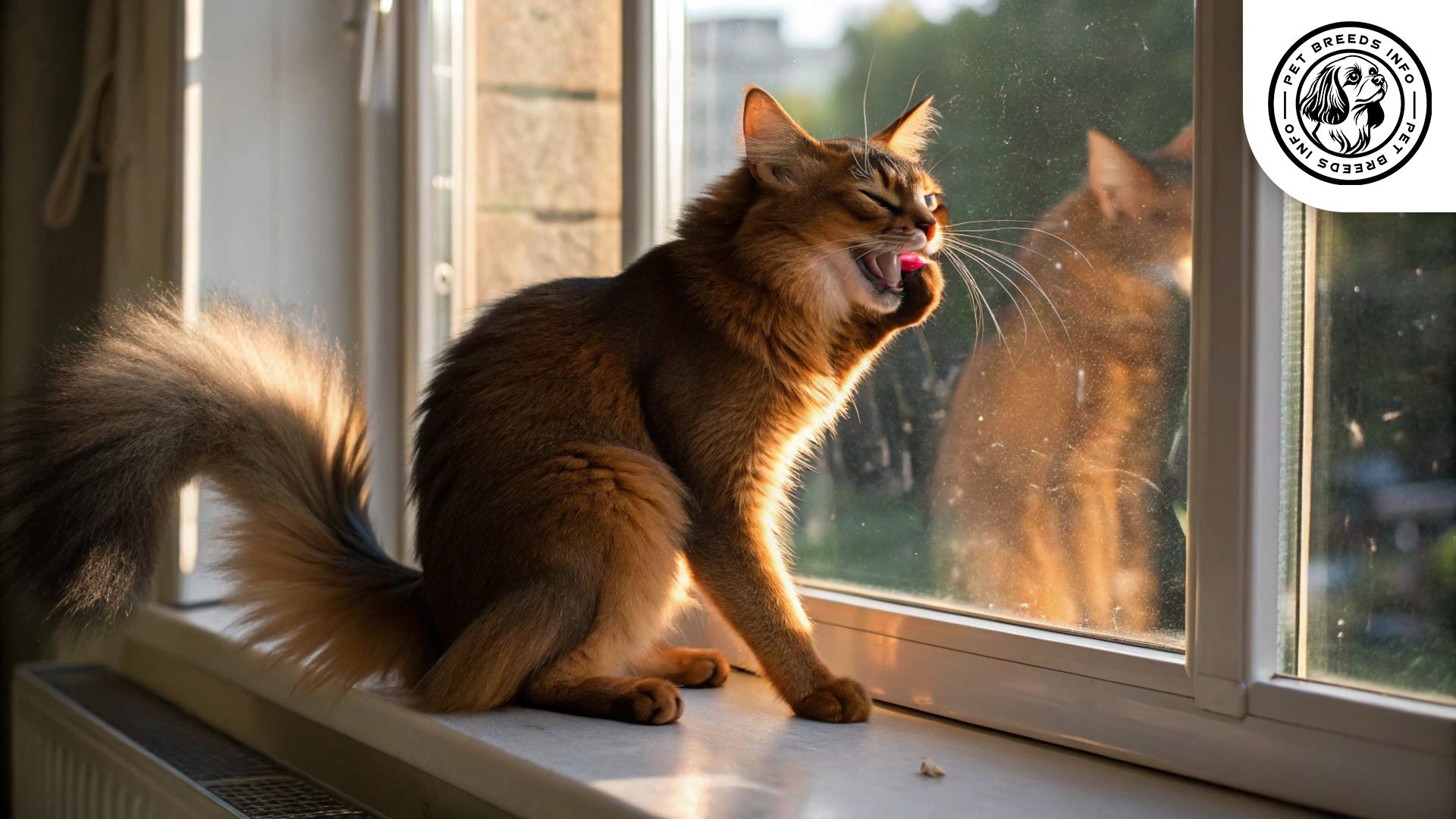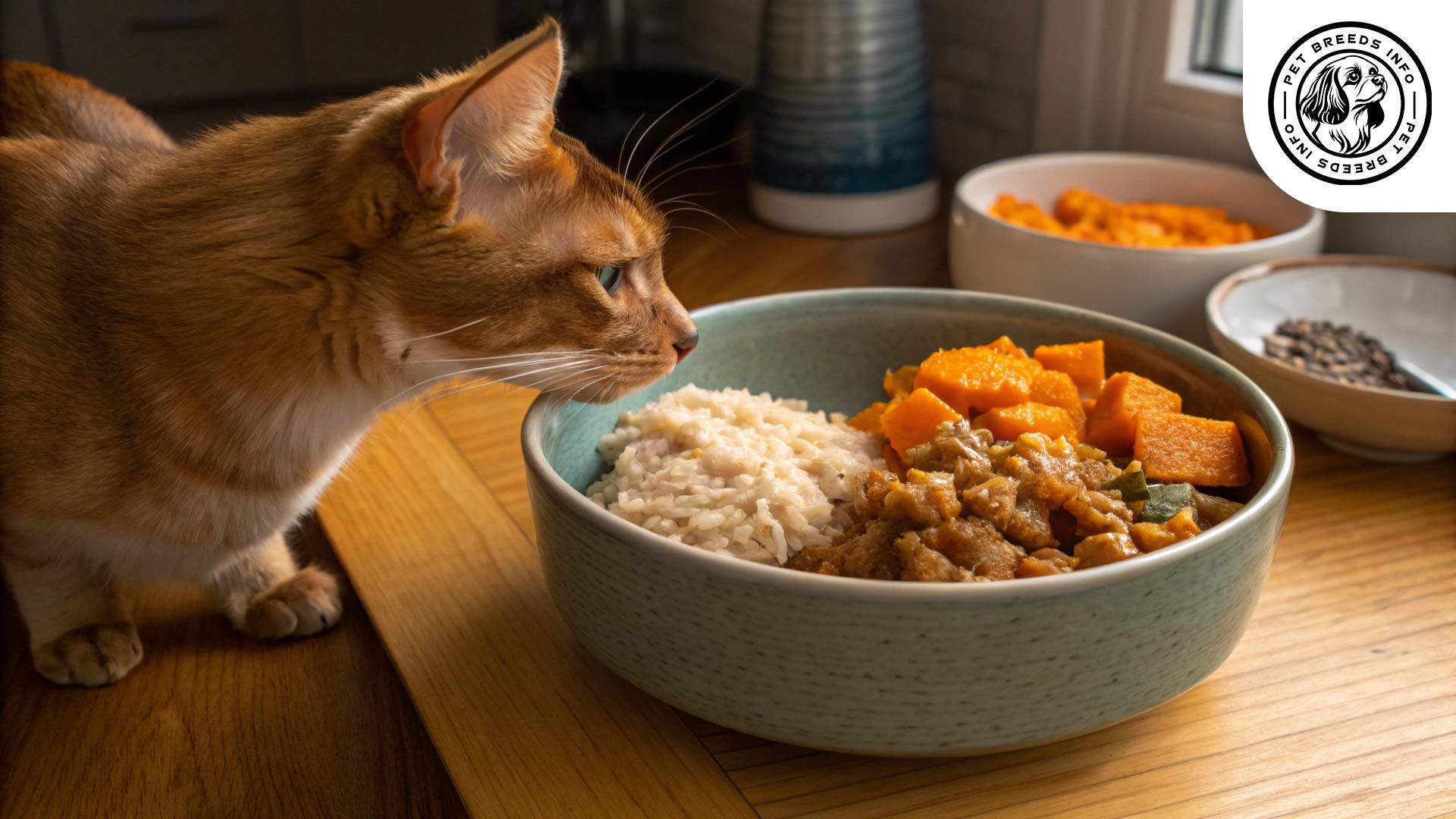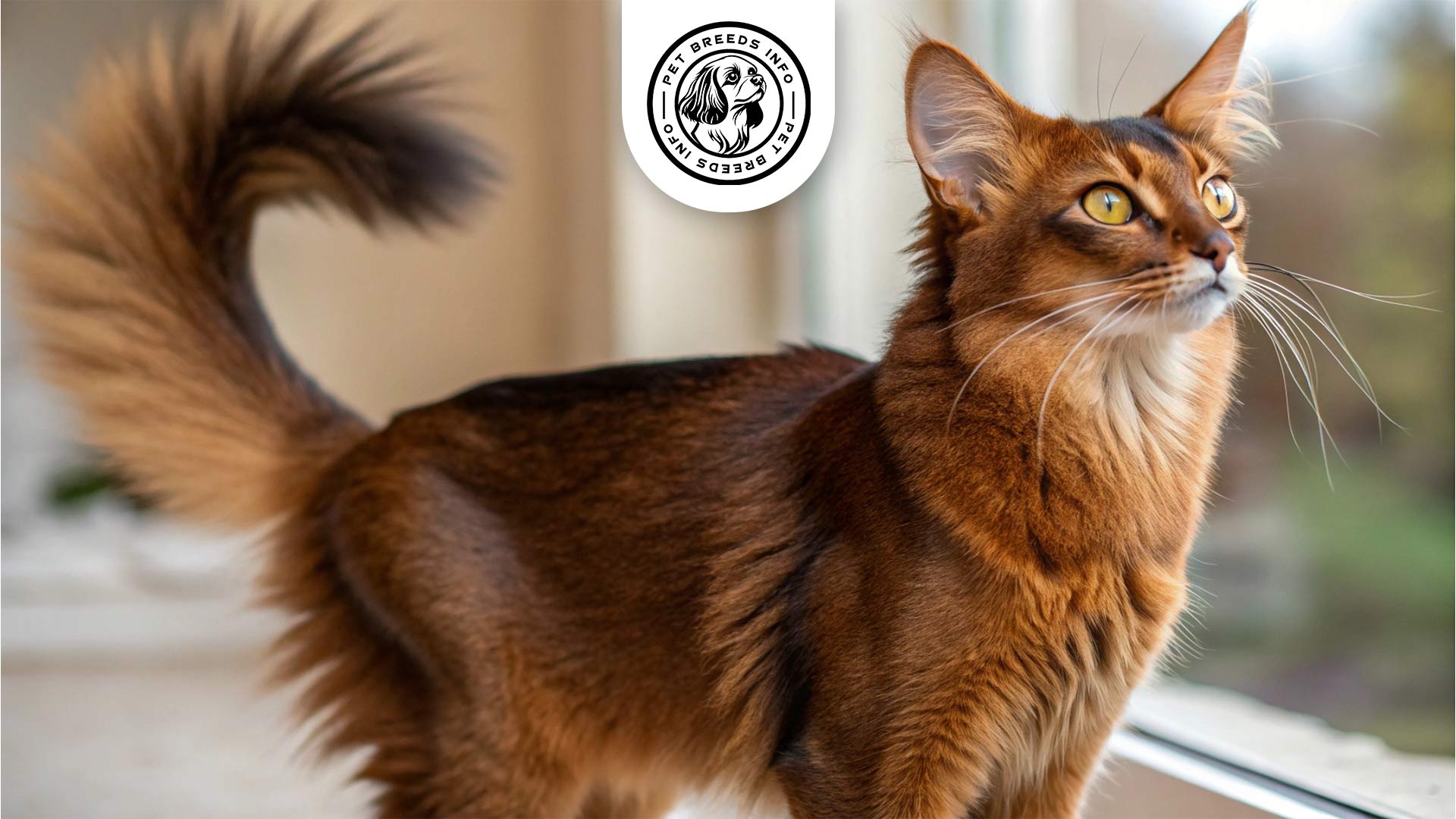Somali Cat Breed: Size, Health, Price & Personality
General Introduction of the Breed
The Somali cat, also known simply as “Somali,” originates from the United States. This breed is essentially a long-haired version of the Abyssinian cat. Despite its name, the Somali cat has no direct connection to Somalia.
The breed’s development began in the mid-20th century when long-haired kittens occasionally appeared in Abyssinian litters. Breeders selectively bred these long-haired cats to develop a distinct breed. The Somali was recognized in the 1970s and has since become popular among cat enthusiasts worldwide.
Table of Contents
| Weight | Males: 8-12 lbs (3.6-5.4 kg), Females: 6-10 lbs (2.7-4.5 kg) |
| Color | Ruddy, red, blue, fawn (ticked coat) |
| Diet | High-quality dry and wet food, protein-rich, portion control |
| Care | Regular exercise, weekly brushing, occasional bathing, nail trimming, ear cleaning, dental care |
| Health | Prone to PRA, dental issues, kidney disease; regular vet check-ups, vaccinations, parasite prevention |
| Nature | Intelligent, curious, energetic, affectionate, social, independent |
| Price | $800 – $2,000 |
| Lifespan | 12-16 years |
Physical Characteristics
The Somali cat is medium-sized, with males typically weighing between 8-12 pounds (3.6-5.4 kg) and females between 6-10 pounds (2.7-4.5 kg). They have a muscular yet elegant body structure.
The breed’s coat is soft, semi-long, and ticked, meaning each hair features multiple bands of color. Recognized colors include ruddy, red, blue, and fawn, with a warm and glowing appearance.
Somalis have large, almond-shaped eyes that are usually amber, green, or gold. Their ears are large, pointed, and slightly tufted, contributing to their wild look. The tail is long, bushy, and resembles a fox’s tail, adding to their distinctive appearance.
Read More: Sphynx Cat
Personality and Temperament
The Somali is an intelligent and highly curious breed. They learn quickly and enjoy interactive toys and puzzle games.
With a high energy level, they require plenty of exercise and mental stimulation. They love to climb and explore their surroundings.
These cats form strong bonds with their owners and enjoy attention but are not overly clingy. They maintain a sense of independence while still enjoying companionship.
Somalis are affectionate and social cats. They interact well with humans, children, and other pets when properly introduced. However, their playful nature may sometimes overwhelm more passive animals.
Due to their natural hunting instincts, they enjoy chasing small objects. They are also sensitive to changes in their environment and may take time to adjust to new surroundings.

Care and Maintenance Requirements
The Somali cat needs regular exercise and enjoys running, playing, and climbing. A home with cat trees and interactive toys is ideal.
They can adapt to apartment living as long as they have enough space and activities to keep them engaged.
Their coat requires moderate grooming. Weekly brushing helps maintain their silky fur and reduces shedding. Unlike some long-haired breeds, they do not mat easily.
Somalis are moderately sensitive to extreme temperatures. They prefer a comfortable indoor climate and should be protected from excessive cold or heat.
Hygiene care includes occasional bathing, regular nail trimming, ear cleaning, and dental care. Brushing their teeth helps prevent dental disease.
Diet and Nutrition
A high-quality diet, including dry and wet food, is best suited for the Somali cat. Protein-rich food supports their active metabolism.
They may have an increased appetite due to their energy levels, so portion control is necessary to prevent overeating.
Foods to avoid include chocolate, onions, garlic, and excessively fatty or processed foods.
Adult Somalis should be fed two to three times a day in controlled portions to maintain a healthy weight.

Health and Common Medical Issues
The Somali cat is generally healthy but is prone to genetic conditions such as progressive retinal atrophy (PRA), a condition that can lead to blindness.
They may also be susceptible to dental issues and kidney disease, so regular veterinary check-ups are important.
The breed has an average lifespan of 12-16 years with proper care and nutrition.
Routine vaccinations, parasite prevention, and annual health evaluations are essential for maintaining overall well-being.
Read More: Ragamuffin Cat
Training and Behavior Management
Somalis are highly trainable due to their intelligence. They respond well to positive reinforcement techniques.
Early socialization and exposure to different environments help in shaping a well-mannered cat.
Litter training is usually easy for this breed, and they can even learn tricks and commands with patience and consistency.
Providing structured playtime and interactive activities helps prevent destructive behaviors.
Interaction with Other Animals and Humans
The Somali cat is playful and affectionate, making them a great companion for children who understand how to handle cats gently.
They generally get along well with other pets, especially if introduced gradually. However, their high energy may intimidate more passive animals.
This breed is well-suited for both families and individuals who can provide attention and mental stimulation.
While they enjoy companionship, they also appreciate a certain level of independence, making them adaptable to different lifestyles.
Price and Availability
The price of a Somali kitten varies depending on the breeder and location, typically ranging from $800 to $2,000.
Potential owners should research reputable breeders who follow ethical breeding practices. Adoption from shelters or rescue organizations is also an option.
When purchasing, ensure the kitten has been screened for genetic health conditions.
Read More: Pixiebob Cat
Conclusion and Final Thoughts
The Somali cat is an excellent choice for active and attentive owners. Their playful nature and intelligence make them engaging companions.
This breed thrives in environments where they receive ample stimulation, whether in a family setting or with an individual who enjoys an interactive pet.
Before adopting a Somali, consider their need for space, regular exercise, and moderate grooming. They are affectionate but also maintain a sense of independence.
For those looking for a lively, intelligent, and beautiful feline companion, the Somali cat makes a wonderful pet.
FAQ
What is the typical temperament of a Somali cat?
Somali cats are known for their intelligent, curious, and energetic nature. They are affectionate and social, enjoying interaction with their owners, but also maintain a sense of independence.
What are the grooming requirements for a Somali cat?
Somali cats have a semi-long coat that requires moderate grooming. Weekly brushing helps maintain their silky fur and reduces shedding. Occasional bathing, nail trimming, ear cleaning, and dental care are also necessary.
What are some common health issues in Somali cats?
Somali cats are generally healthy but may be prone to genetic conditions such as progressive retinal atrophy (PRA), dental issues, and kidney disease. Regular veterinary check-ups are essential.
What type of diet is best for a Somali cat?
A high-quality diet, including dry and wet food, is best suited for Somali cats. Protein-rich food supports their active metabolism, and portion control is necessary to prevent overeating.
How much does a Somali kitten typically cost?
The price of a Somali kitten varies depending on the breeder and location, typically ranging from $800 to $2,000.
